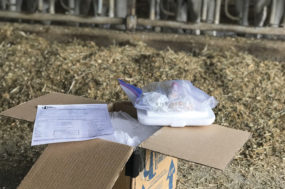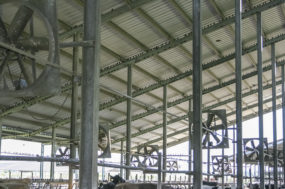I am fortunate enough to have been blessed to know my grandparents.
On both sides, they are people who left war-torn Europe in search of a continent that didn’t start world wars every 40 years. These were individuals that knew what it meant to go hungry and knew how to make a dollar stretch. This imprinted life event led to massive gardens and pantries full of canned fruits and vegetables. It was a lifestyle where you would share your abundant garden excess with neighbors and church friends. It was a time when, if you were buying rhubarb or zucchini in the grocery store, it was safe to assume you had no friends.
There are stories of my grandpa’s shop being filled with coffee cans full of nails that he picked up at a job site and painstakingly hammered straight to save for his own projects.
My grandparents and parents went through the massively inflationary times of the ’80s when double-digit inflation ran rampant. Store clerks ran around with a sticker gun and increased prices daily. This taught them to be self-sufficient, and they usually never threw anything away because they saw prices constantly increasing.
This period of time has been long forgotten by us younger generations. We have grown up in a time of easy money with a federal reserve content to keep interest rates near 0. As a group, we also benefited from a period of rapid industrialization and cheap imports. That jar of green beans which would have taken hours of gardening, snapping and pressure cooking could now be bought for 99 cents from Walmart. The part we want from the equipment store is just a phone call away.
We are in unparalleled times, and it may benefit us to start living more like our grandparents.
It is time to never throw anything away. Our farms should be graveyards of fully depreciated equipment. Our shops should be filled with every spare oil filter from wheat combines of 60 years ago, regardless of whether we have a combine or wheat. We need to be sitting on buckets of nails, and trays of nuts, bolts and washers. We can then subtly brag every time we hear someone complain about a part they had to buy for a ridiculous amount of money.
“You paid how much for that? I think I have three of them in my back room.”
We need to become “never-throw-anything-away” people. Super popular when friends need parts. Not so popular when you pass on and your kids need to have an auction with a million hydraulic hose fittings and 18 Briggs & Stratton lawn mower engines in various states of disrepair. In a world where parts supply places are carrying smaller and smaller inventories at higher and higher prices, the never-throw-anything-away guy is making a comeback.
Ironically, in the throwaway society that we live in, recycling parts is typically called “green.” However, for much of history, it was just called being poor and knowing how to make things work.
Some of the results of rampant inflation may not be all bad. As we see our part runs becoming more expensive, and our grocery carts seemingly empty for $200, we can think of the good parts of how our grandparents and parents grew up. We have outsourced so much of our work and are busier than ever. It might be good for us to spend some time inventorying a nut and bolt shelf. It might be good to sweat in the garden and spend some time washing, snapping and canning green beans with those closest to us.
Let’s learn to be more self-sufficient and more dependent on those around us. Be the guy who has the part someone is looking for and the guy people shake their heads at when they have an auction with dipsticks from tractors no longer in production.





